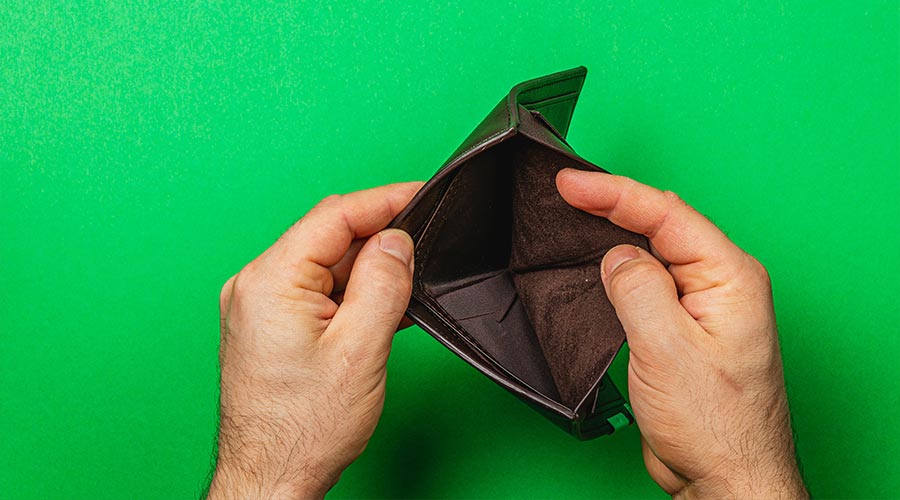
By Mark Patterson, Anago of North Florida
When the economy dips, most industries brace for impact. However, one sector consistently proves its resilience–commercial cleaning. From 2008 to 2020 and through every economic wobble, janitorial and commercial cleaning businesses have continued to grow, often outpacing sectors tied to consumer spending or discretionary budgets.
The reason? Cleanliness isn’t optional. Facilities open their doors, workers return to offices (eventually), and regulatory standards for health and sanitation only tighten in downturns. Whether in health care, education, or logistics, cleaning is a core operational requirement, not a luxury line item.
But staying “recession-resistant” isn’t automatic. It’s a strategy. Here’s how owners and operators can position themselves to thrive–and why economic uncertainty can be the best time to grow your cleaning business.
Unemployment Rises, Sales Climb
One of the most overlooked patterns in the cleaning industry is the direct relationship between unemployment and franchise or business unit sales. When layoffs rise, so does entrepreneurship. When the steady paycheck stops, the main question is,“How can I control my future?”
Commercial cleaning offers one of the lowest barriers to entry and one of the fastest paths to revenue. Start-up costs are lower than in most service industries, and client demand remains stable regardless of Wall Street trends. In fact, franchise systems and independent operators often see spikes in new unit growth during periods of economic contraction– precisely when others pull back.
It’s a paradox worth noting: cleaning business opportunities expand when the job market tightens.
Whether it’s a federal shutdown or budget gridlock, businesses that rely on government contracts, subsidies, or consumer credit often freeze. Meanwhile, private sector cleaning contracts (from logistics warehouses to apartment complexes) keep rolling. The operators who thrive during those moments are the ones whoown their book of business. They aren’t waiting for approval or budget clearance; they’re out securing recurring contracts and adding value through reliability and responsiveness.
For instance, during the 2019 government shutdown, cleaning franchises and independent operations across the country didn’t just survive—many expanded. Why? Because they filled the gap left by delayed government services and maintenance schedules. In times of uncertainty, self-employment isn’t just a hedge; it’s a strategy for control.
Diversify Your Facility Portfolio
Facility cleaning businesses that serve a cross-section of industries, such as commercial office, medical, retail, and industrial, tend to weather recessions best. When one sector tightens spending, another surges.
- Medical and educational facilitiesmaintain strict cleaning standards regardless of the economy.
- Distribution centers and manufacturingincrease operations during consumer slowdowns as e-commerce demands shift.
- Multi-tenant commercial buildingsoften reallocate budgets toward cleanliness to maintain tenant satisfaction and occupancy rates.
Diversification of service contracts provides insulation–not only against economic swings but also against seasonality and geographic risk.
Being recession-resistant doesn’t mean being complacent. It means doubling down on fundamentals: sales discipline, contract diversification, and client retention.
Smart operators use slow economic cycles to:
- Recruit top talent as the labor pool opens
- Acquire smaller competitors struggling with cash flow
- Reinvest in marketing and technology while others cut back
Commercial cleaning has always been one of America’s quiet economic stabilizers. When offices close, they still need disinfection. When budgets shrink, facilities still need to meet compliance standards. And when unemployment rises, people rediscover the entrepreneurial promise of owning a cleaning business.
So, while other industries wait for recovery, facility cleaning professionals can build it–contract by contract, floor by floor. If you play it right, this isn’t just a recession-resistant business. It’s a freedom-resistant business. You’re in control, no matter what Washington or Wall Street does next.
5 Ways to Build Recession Resistance in Your Cleaning Business
- Sell recurring contracts. Focus on clients that renew quarterly or annually to stabilize cash flow.
- Diversify sectors. Spread contracts across office, medical, retail, and industrial environments.
- Automate reporting. Use digital tools for accountability, compliance, and client confidence.
- Keep selling. Recessions thin the competition – make yourself visible and indispensable.
- Stay visible. Market your expertise in health, safety, and facility reliability. When others go quiet, your voice stands out.
Mark Pattersonis the Master Franchise Owner for Anago ofNorth Florida, part of the Anago Cleaning Systems brand supporting over 1800 franchises across the U.S. and Canada. For more information about Anago ofNorth Florida, visit www.AnagoCleaning.com/NorthFlorida.
posted on 11/19/2025

 Celebrating BSCAI's 60th Anniversary eBook
Celebrating BSCAI's 60th Anniversary eBook The Down and Dirty on Cleaning in Virus Season
The Down and Dirty on Cleaning in Virus Season How Surfactant Use is Expanding in Commercial Cleaning
How Surfactant Use is Expanding in Commercial Cleaning